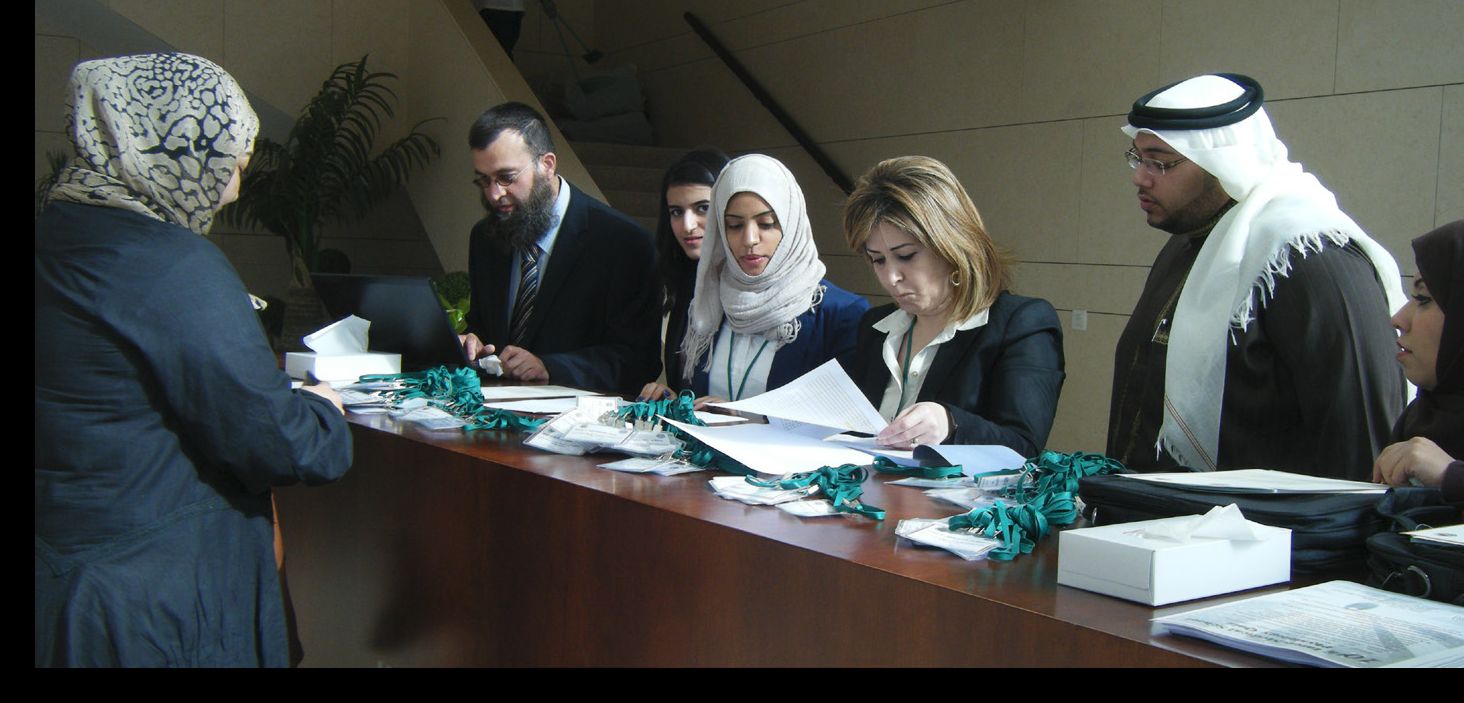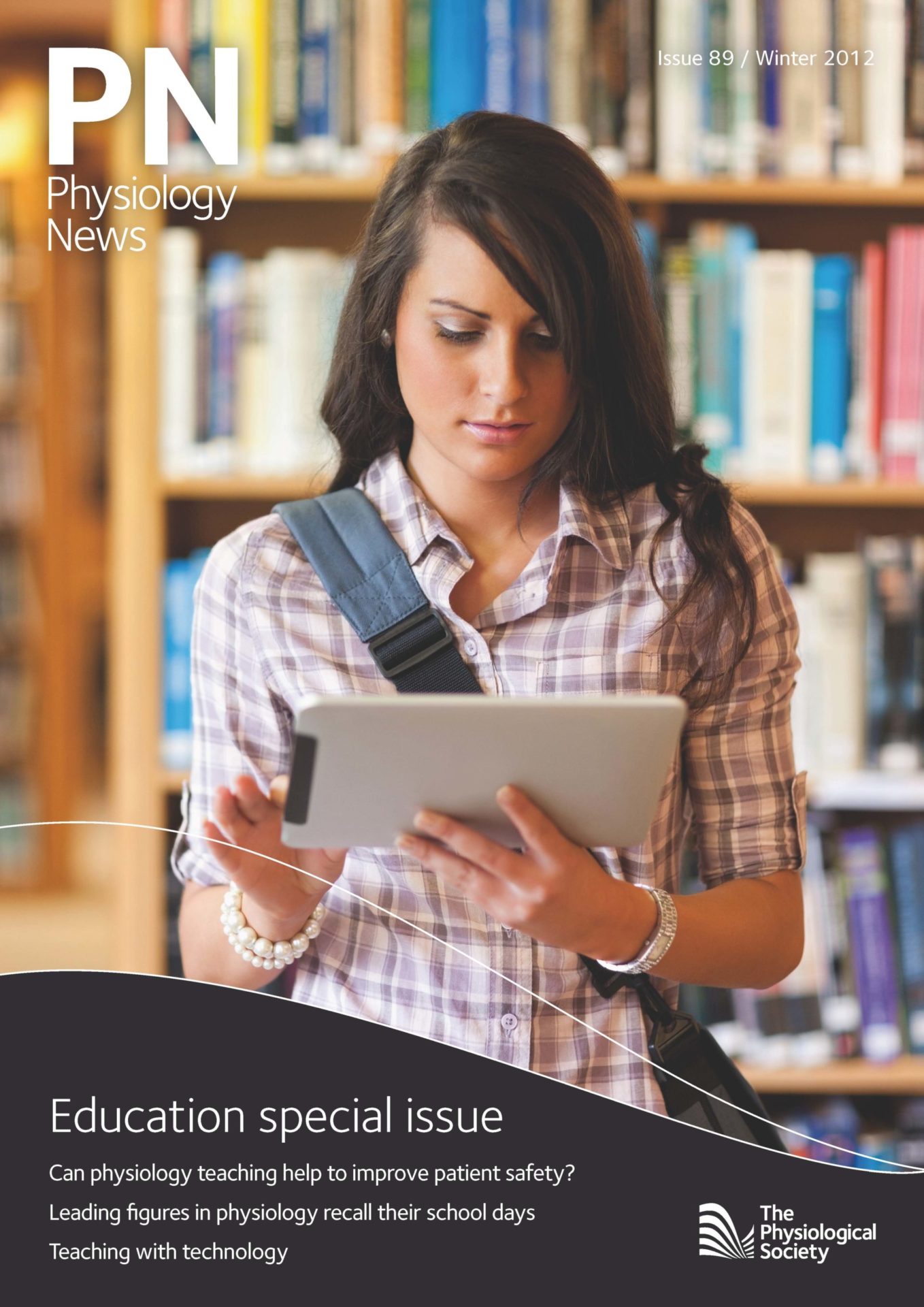
Physiology News Magazine
IUPS Physiology Teaching Conference and Workshop
Meeting Notes
Events
IUPS Physiology Teaching Conference and Workshop
Meeting Notes
Events
Mirza Mohammed & Feisal Subhan
Arabian Gulf University, Kingdom of Bahrain
https://doi.org/10.36866/pn.89.14
31 March – 1 April 2012, Kingdom of Bahrain

During the closing session of the IUPS teaching workshop at Kobe, Japan, in August 2009, the idea of a similar workshop in the Middle East was raised. As I was the only representative from that region, I half heartedly volunteered (with a bit of gentle coercion). Back in Bahrain, I got the ball rolling by writing a proposal and getting approval from my university hierarchy, all the way up to the President of the Arabian Gulf University.
There has been a 400% growth in the number of Departments of Physiology in the Middle Eastern region over the last two decades. Twenty years ago, only eight medical schools were present in the Gulf Cooperation Council, now there are 29. However, during this time several nearby countries have been devastated by wars or civil strife, including Iraq, Afghanistan, Somalia and Yemen. Such countries need rebuilding and retraining in many areas, including physiology, but to hold a workshop in these countries would be difficult for security and logistical reasons, so Bahrain was an appropriate location.
We conducted a need assessment using an online questionnaire in April 2010, to find out what topics people would be interested in; this also advertised our meeting. After identifying suitable speakers, we embarked on a plan to find our participants. We emailed over 150 colleagues who were teaching basic sciences (primarily physiology) and we received 72 positive replies, from 14 countries.
The main focus of the meeting was to improve teaching of physiology to medical students, with the ultimate goal of improving the competence of doctors and the quality of medical care in the region. The objectives of this workshop were:
• To create a sustainable regional collaboration between physiologists and other basic scientists for learning and educational research
• To train physiologists and basic scientists in new teaching and learning strategies
• To provide a platform to discuss problems unique to the Middle East.
To bring the meeting to fruition, we had to address several organizational issues, primarily the absence of a functioning physiological society in the region and the problems of forming a new society under the prevailing political situation. We had to start from scratch to contact participants, speakers and sponsors, as well as set up the meeting website and even print bags and programmes. At one point, just days before the meeting, I was receiving and replying to more than 50 emails per day!
The meeting was originally set for March 2011. However, civil unrest in Bahrain meant it was postponed until 2012. The meeting eventually brought together 87 participants and five invited speakers from 23 countries, including Bangladesh, Egypt, India, Maldives, Nigeria, Palestine, Somalia and South Africa. Attending the meeting was not easy for everyone, though. A delegate missed her flight from Libya because of skirmishes near Benghazi airport and sadly, although 20 Iraqi physiologists had registered, they were not granted visas.
Feedback at the end of the meeting was extremely positive. Most participants commented on the knowledge they obtained, the networking between speakers and participants, the interactive experience they had, the good hospitality and organization of the meeting.
One participant wrote: “This was the first international conference I have attended and, as a novice in academia, I found it a stimulating, fruitful and an inspiring experience. Despite the limited resources available, you have managed to deliver an educational event that has brought together experts from all corners of the globe. This is a positive reflection on the cohesiveness of the department and academic staff in physiology, an example one would hope to emulate. Your efforts are much appreciated.”
